INTRODUCTION
10/12/2023- For so many in the cancer community, it is rare to spot a bouquet of white roses and not think about the kindness and the giving spirit of
Dr. Nancy Novack, founder and CEO of Nancy's List (
NancysList.org). This year, Nancy (as she prefers to be addressed) was inducted unanimously by the collective board of the Integrative Cancer Resource Society (ICRS) as "the Top 2023 Cancer Crusader" during the Fall Women's Roundtable Powermeet Conference.
This meeting, hosted by the Coalition for Women's Cancers aligned a special grouping of community leaders, clinicians and advocates working together to share information about the current state of cancer care. "It was such an honor to finally be connected with Nancy", starts Dr. Leslie Valle-Montoya- recently elected executive director of ICRS. "You couldn't be in the cancer awareness community and not hear about Nancy's List. To hear firsthand HER story (with that soft and genuinely loving voice) including how it all started truly hits you deep into your soul- and makes you want to be part of her mission!"
Nancy's List is a free website that started in 2008, researching, organizing and publishing resources for cancer patients and survivors. According to the website, it's core beliefs "inspire community-wide support system for children, teens, and adults who are living with, through, and beyond cancer. Nancy's List is a compassionate grassroots effort committed to significantly improving the quality of life for these individuals, their families, and their caregivers.
INSPIRING OUR COMMUNITY "TO BE THE VERY BEST IT CAN BE" - From an interview by: Nancy Novack
I am a survivor of 20 years of stage four ovarian cancer. I knew nothing about cancer at that time, and just was complaining of what I thought was an appendicitis attack. (Of course) that didn't turn out that way. I was swept away to Stanford where I was treated pretty traditionally by a wonderful man whom I have a tremendous amount of respect and trust in- and I haven't had a recurrence in 20 years. I love being Stanford's poster poster child, but I think in the process I learned a great deal about the psychology (which I'm a psychologist) of cancer. I don't have the medical knowledge, but I certainly understand the psychology within my work with so many cancer patients.
As it turned out, I spent a great deal of time in the infusion room with a ton of chemo. Because I'm a psychologist, I tend to ask a lot of questions and started talking to everybody in the room about what their experience was. I call it immediate intimacy that you have with another cancer patient. All of a sudden you cut through everything and you're everybody's best friend, and what I was struck by was the amount of fear that went into (not about dying, but) the fact that they didn't have enough money to have cancer. And that they feared that if they told their doctors they wouldn't be treated if they told their doctors that they couldn't afford their medications- and instead put food on the table for their families, they would be dismissed. So many stories of people telling me deep pain that they were suffering and a lot of stress about the money.
AFFORDING CANCER
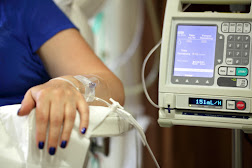
They didn't get why they were so vulnerable but they all came to together and did a community action to adopt the families that were living in Marin. Most of this early group had prostate cancer and breast cancer. It was almost like an epidemic. It was huge numbers, and we just adopted them. And the little kids sent get well cards. The teenagers made food for the families. It was just an all out community action. And then that changed and it became a club for kids who were living with cancer where we went on adventures every weekend like going sailing. These were kids that had all kinds of brain cancer or leukemia. They're all alive today and I still hear from them, but during that time, they got to be kids. And that was important to me that they have that opportunity to be kids; they were supportive of each other, and they all ended up going to camps together for, for cancer kids and their families. It was a great project and it just kept changing a little bit when I see something that needs to happen.
I'm still working on the financial resources every day. However, since the pandemic, I find cancer patients also have a lot of problems with Covid-- and again, people just don't have money to support themselves. Cancer survivors are so vulnerable as covid patients so finding out the foundations that can support people who have cancer AND have Covid.
When I moved to Texas, I lost my license to practice legally. I still help people by phone, but I don't have a legitimate license here. There's no reciprocity with California, which shouldn't surprise anybody. So I decided I could make a bigger network without a license and just kept identifying needs. And one was to make people much more aware of integrative oncology and how this could really support and deepen the healing process.
We have a huge director, probably a thousand people all over the country of practitioners and healing centers that they can access. That's been very well received because they don't know this stuff on their own. It explains all the different modalities that are well connected with common will. I think my job (here) is to connect people with different resources that can help them focus on the real healing process at the same time. We have a real push for quality of life stuff that really gives them a free retreat or a free cancer camp, or a wish fulfillment project - something that really deepens their family connections and connects them emotionally to one another and to their bodies. I still talk about that a lot in many podcasts where we dive into financial resources and quality of life.
THE DENSE BREAST PARADIGM
Another panelist of the Cancer Powermeet was
Joe Cappello of the "Are You Dense" Foundation, who was astonished at how Nancy fully-related to his awareness mission about Dense Breasts and its links to cancer. "I actually have dense breasts", starts Nancy. "...and nobody has done a thing about it any different than the old fashioned mammogram. And every time I go in there and I say, "but wait a minute, what about sonogram?"... and they act like this is such an odd request. I'm very interested in this subject and I'd like to help you educate more women about this and what's available to them. I believe they can push for the same kind of techniques that we should all be having. I do worry about it because I've been following Dr. (Robert) Bard's work and that's a concern to me. And probably many of the women that I deal with-- 40% post-menopausal women, sign us up! My ultimate job is to educate people and give them opportunities and possibilities other than the leftovers that we've been doing for so long."
A CONTAGIOUS LEGACY OF COMPASSION AND ANSWER-FINDING
Dr. Leslie-Montoya underscores Nancy's monumental achievements by building what many call "the largest national cancer resource online... just about every support resource and cancer doc and healer from every type of modality is at Nancy's list!". Moderator
Lennard Goetze (founder of the now-national ICRS charter) admits in this forum that each time he produces a group and mentions the word 'resource', he thinks of Nancy every time. "To follow in her footsteps or even being in her shadow is goodness x10! I drive so many cancer patients and their families to her site, and I also find myself to reference it 'too often' either to get inspired and/or to find that kind of helpful information." He adds, "With great thanks to Nancy Novack, I have become a patient advocate (by profession), a publisher of cancer news and even a call-in center for many cancer cases (alongside my publishing partners "
Cousin Sal" Banchitta and
Dr. Robert Bard in our "Get Checked Now!" program). Giving of ourselves in the form of education, advocacy and resource sharing has made us all a cancer resource ourselves... I guess being touched by Nancy is CONTAGIOUS!"
The continuance of Nancy's inspiration also sparked the next ICRS development of the 2024 WOMEN'S HEALTH DIGEST- a collaborative free publication managed/edited by Dr. Roberta (Bobbi) Kline- offering field-based articles, videos and reports by clinical professionals and academic educators. WHD is collectively designed mostly "by women for women" in support of women's health, lifestyle and early detection, and a significant section covers the latest topics about women's cancers.
2024 CLINICAL PROFILE OF THE DENSE BREAST PARADIGM - for the Obstetrics & Gynecology Society
Published by ICRS Medical Press Ltd.
Breast cancer affects the lives of hundreds of thousands of women every year and is a leading cause of death. While we have made great progress in advancing earlier diagnosis and more individualized treatments, we still need to improve our approach to achieve our ultimate goal - prevention. This requires a deeper understanding of the molecular mechanisms and the multitude of factors that contribute to the development of breast cancer.
Dr. Roberta Kline, recognized speaker and publishing crusader for women's health brings you a comprehensive review and a deep-dive analysis of the current research findings about breast density and its major risk factors for breast cancer. Her reports uncover current imaging practices and clinical protocols updated in great support of breast density detection and the means of addressing this growing condition that affects over 45% of the female population. "Knowing a woman has greater breast density is a critical first step, but it doesn’t end there... we need to go further by understanding the causes of breast density, and how they relate to breast cancer-- we now have another avenue to proactively intervene to reduce risk or even prevent breast cancer in the first place." This textbook is a champion in targeting the
Dense Breast Paradigm as a blueprint and a clear course study for all clinical professionals who are dedicated to women's early detection and prevention programs.
(More information)
LAUNCHING IN 2024: NATIONAL COALITION OF WOMEN'S HEALTH SUPPORT
Professional health orgs, foundations and advocates of women's health disorders (primarily cancers) is uniting to form a national alliance of collaborators. This collective group is focused on "doing more together" as far as exploring new resources, sharing current ideas and addressing a wide range of topics about women's issues. Meetings like our latest Women's Powermeet series discussed the latest in diagnostic and therapeutic solutions while introducing who's who in national crusadership in the advocacy realm. Clinicians are also welcome to discuss patient-dedicated road maps and a more thoughtful health analysis and research-based evaluation. It is this level of commitment to women's health that provides a deeper sense of care for the patient that lends itself to a more holistic and integrative strategy to therapeutics. It is also this philosophy that draws more intuitive and insightful awareness on a global scale to offer collaboration platforms too better share insights on a patient's disorders to seek out better solutions. (
See Women's Health Digest)
WOMEN’S HEALTH DIGEST
From the publishers of THE WELLNESS JOURNAL and the WOMEN'S DIAGNOSTIC NETWORK NEWS comes a consortium of IPHA'S top professional contributors in women's health & wellness advocacy. Subscribe to our latest community E-news forum and get the insiders news on pain therapeutics, diagnostics and lifestyle upgrades. We welcome special guest contributors from all modalities of healing - from practitioners, product innovators and researchers. Also, gain valuable insight from success stories of real people and their experience with WHAT WORKED for them! Get front row access to our latest headlines. Visit:
WomensHealthDigest.org







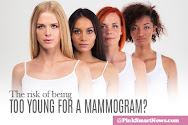















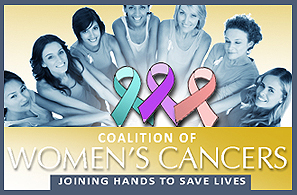
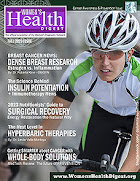


.jpg)

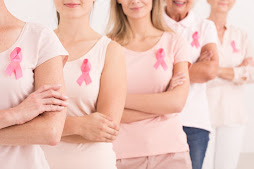
.jpg)



